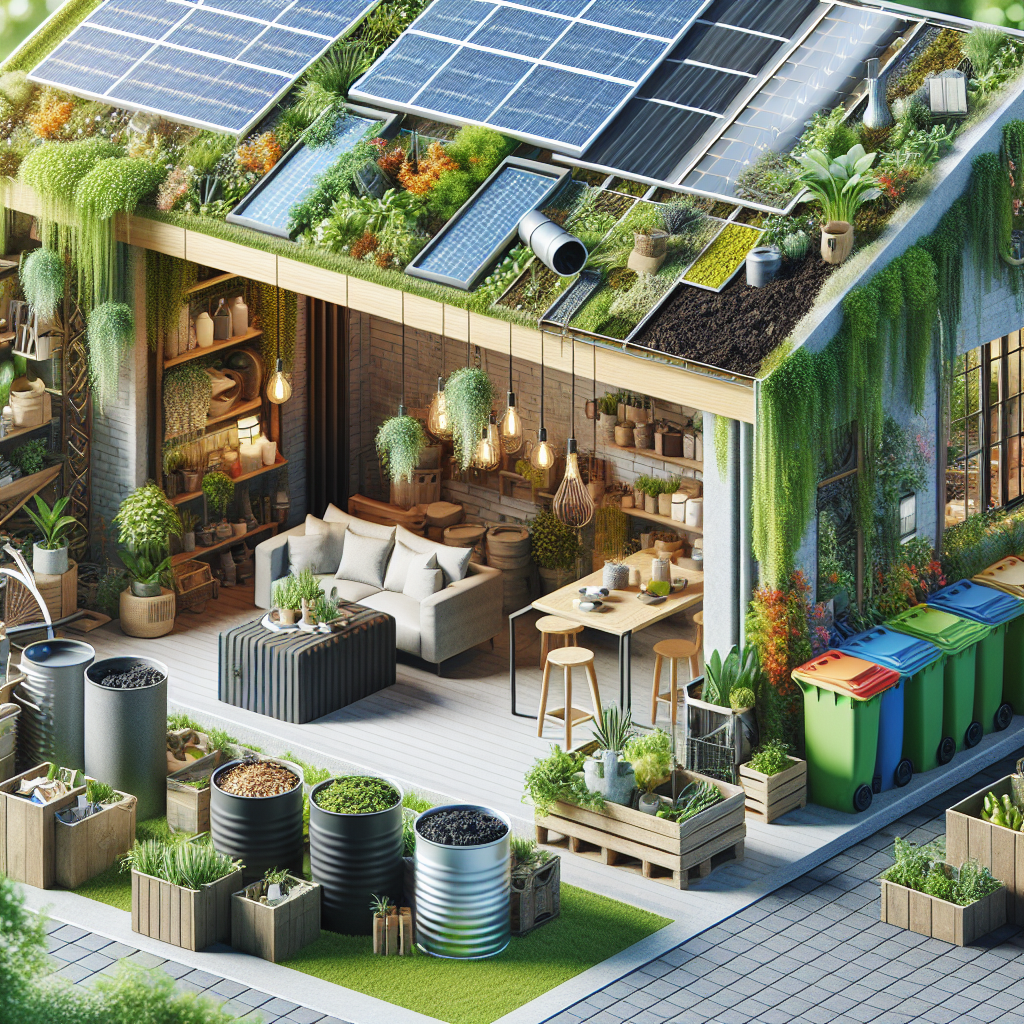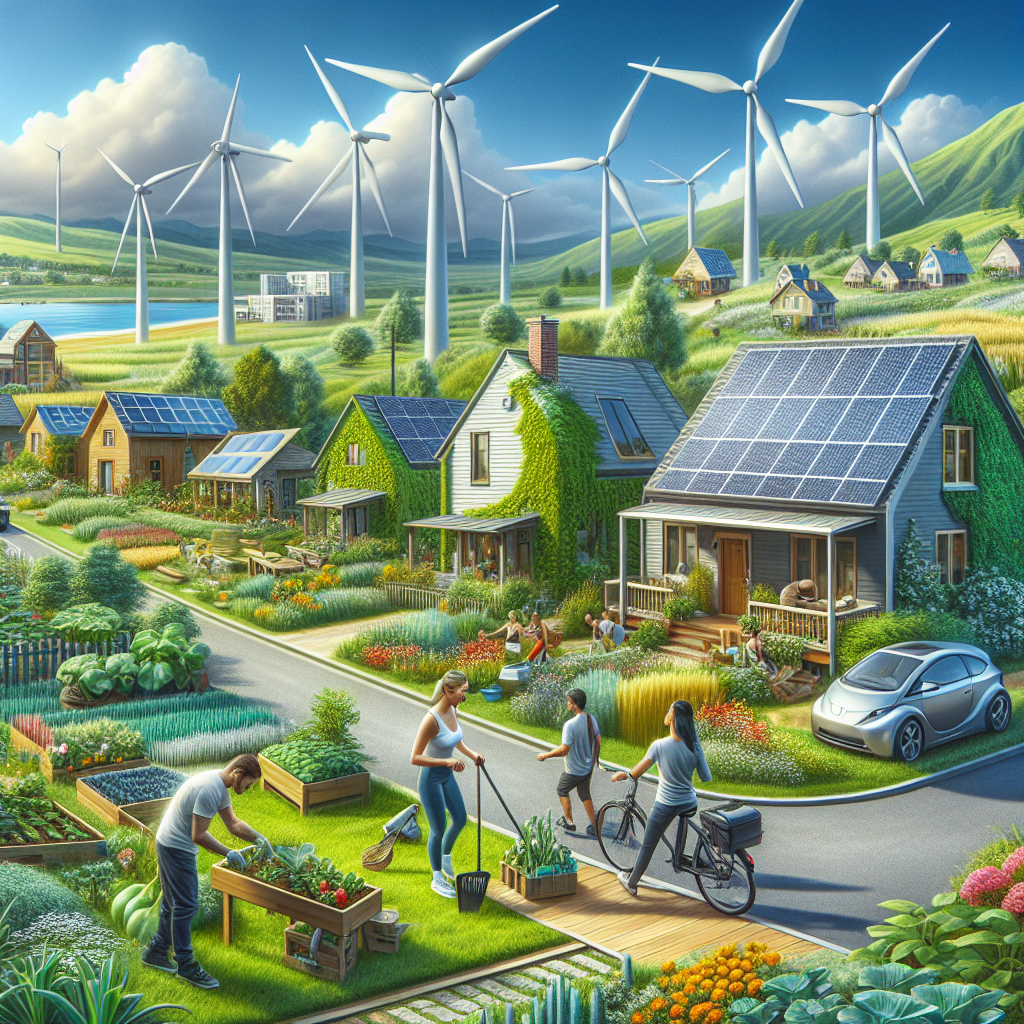Embracing an eco-friendly lifestyle is not just a trend; it's a vital step towards ensuring a sustainable future. Living in harmony with nature can lead to numerous personal benefits, including improved health and a sense of well-being. Moreover, our collective efforts can significantly impact the planet, reducing pollution, conserving resources, and protecting biodiversity.
Becoming eco-friendly at home starts with small, manageable changes that can lead to substantial long-term results. By altering daily habits and making conscious choices, we can reduce our carbon footprint and contribute to a healthier environment. Whether it's through conserving water, reducing waste, or choosing sustainable products, every action counts.
At Lady Mascheria Natural Beauty, we believe in the power of nature and its ability to heal and rejuvenate. Our products are carefully crafted to harness the natural benefits of botanical ingredients, providing you with a luxurious yet sustainable beauty routine. Visit our website to learn more and get started today! Click here.
As you embark on this journey towards eco-friendly living, remember that it's about progress, not perfection. Every step you take brings you closer to a more sustainable lifestyle. In the upcoming sections, we will explore practical tips and strategies to help you make your home and daily routines more eco-friendly.
Reducing Household Waste

One of the most impactful ways to become more eco-friendly at home is by reducing household waste. Waste reduction not only helps in conserving precious resources but also in minimizing the amount of trash that ends up in landfills, which can take years to decompose and often releases harmful toxins into the environment.
Here are some practical steps to reduce waste:
- Recycle and Compost: Familiarize yourself with your local recycling guidelines and ensure that you sort your waste accordingly. Composting organic waste like food scraps and yard waste can significantly reduce the amount of trash you produce while creating nutrient-rich soil for your garden.
- Reduce Single-Use Items: Opt for reusable alternatives to single-use items such as water bottles, coffee cups, and shopping bags. Investing in high-quality, durable items can save you money in the long run and reduce waste.
- Mindful Purchasing: Be conscious of your shopping habits. Choose products with minimal packaging, and buy in bulk when possible to reduce the amount of packaging waste.
- Repurpose and Donate: Before discarding items, think about how they can be repurposed or donated. Many items can find a second life in your home or be useful to someone else.
By integrating these practices into your daily routine, you can make a significant difference in reducing your household waste. Start small, and gradually introduce more waste-reducing habits into your lifestyle. You'll find that these changes not only benefit the environment but also create a more organized and efficient household.
Conserving Energy at Home

Conserving energy at home is a crucial step towards achieving a more eco-friendly lifestyle. By reducing your energy consumption, you not only decrease your carbon footprint but also save money on utility bills. Here are some effective strategies to help you conserve energy:
- Switch to LED Bulbs: LED bulbs use significantly less energy than traditional incandescent bulbs and last much longer. Replacing your home's lighting with LEDs can lead to substantial energy savings.
- Unplug Electronics: Many electronic devices consume energy even when they're turned off. Unplugging gadgets and appliances when not in use, or using a power strip to turn them off completely, can reduce this 'phantom' energy consumption.
- Optimize Heating and Cooling: Ensure your home is well-insulated to maintain a consistent temperature. Use programmable thermostats to regulate heating and cooling only when needed, and consider using fans or natural ventilation to reduce reliance on air conditioning.
- Energy-Efficient Appliances: When it's time to replace old appliances, opt for energy-efficient models. Look for the ENERGY STAR label, which indicates that the product meets strict energy efficiency guidelines set by the EPA.
- Natural Lighting and Ventilation: Maximize the use of natural light during the day to reduce the need for artificial lighting. Open windows for natural ventilation to improve air quality and reduce the need for mechanical ventilation.
Implementing these energy conservation measures can have a significant impact on reducing your household's overall energy consumption. Small changes, when multiplied across many households, can lead to substantial environmental benefits. Begin with one or two strategies and gradually incorporate more to build a more energy-efficient home.
Eco-Friendly Cleaning Solutions

Transitioning to eco-friendly cleaning solutions is an excellent way to reduce your home's environmental impact. Conventional cleaning products often contain harsh chemicals that can harm the environment and your health. By opting for natural and sustainable alternatives, you can maintain a clean home while protecting the planet. Here are some tips to get you started:
- DIY Cleaning Products: Many effective cleaning solutions can be made using common household ingredients such as vinegar, baking soda, lemon juice, and essential oils. For example, a mixture of vinegar and water can serve as an all-purpose cleaner, while baking soda is great for scrubbing surfaces.
- Choose Eco-Friendly Brands: Look for cleaning products labeled as environmentally friendly, biodegradable, or non-toxic. These products are formulated to be safe for the environment and less harmful to your health.
- Reusable Cleaning Tools: Instead of disposable wipes and paper towels, use reusable cloths, sponges, and mop heads. Microfiber cloths are particularly effective for cleaning and can be washed and reused multiple times.
- Avoid Synthetic Fragrances: Many conventional cleaning products contain synthetic fragrances that can cause allergic reactions and respiratory issues. Opt for fragrance-free products or those scented with natural essential oils.
- Proper Disposal: Dispose of any remaining conventional cleaning products responsibly. Many communities offer hazardous waste disposal programs to ensure these chemicals do not contaminate the environment.
By incorporating these eco-friendly cleaning solutions into your routine, you can create a healthier home environment and contribute to a more sustainable world. Making small changes in the way you clean can have a significant positive impact on both your well-being and the environment.
Sustainable Home Decor Ideas
Embracing sustainable home decor is a fantastic way to enhance the beauty of your living space while minimizing your environmental footprint. By choosing eco-friendly materials and mindful design practices, you can create a stylish and sustainable home. Here are some ideas to inspire you:
- Upcycled Furniture: Give new life to old furniture pieces by upcycling them. This can be as simple as repainting a dresser or reupholstering a chair. Upcycling reduces waste and adds a unique, personal touch to your decor.
- Natural Materials: Opt for decor items made from natural materials like bamboo, reclaimed wood, organic cotton, and jute. These materials are often more sustainable and have a smaller environmental impact compared to synthetic alternatives.
- Second-Hand Finds: Thrift stores, antique shops, and online marketplaces are treasure troves for unique and affordable home decor items. Buying second-hand reduces demand for new products and prevents items from ending up in landfills.
- Energy-Efficient Lighting: Choose LED bulbs and energy-efficient light fixtures to reduce energy consumption. Additionally, consider using natural light as much as possible by keeping windows unobstructed and using light-colored curtains.
- Indoor Plants: Incorporate indoor plants into your decor for a touch of nature and improved air quality. Plants like spider plants, snake plants, and pothos are not only beautiful but also excellent at purifying the air.
- Minimalist Approach: Embrace a minimalist design philosophy by focusing on quality over quantity. Select a few high-quality, timeless pieces that you truly love, rather than filling your space with trendy items that may quickly go out of style.
Incorporating these sustainable home decor ideas into your living space not only enhances its aesthetic appeal but also contributes to a healthier planet. By making mindful choices, you can create a beautiful and eco-friendly home environment.
Embracing Nature in Daily Life

Living harmoniously with nature is not only beneficial for the planet but also for your well-being. By embracing nature in daily life, you can foster a deeper connection with the environment and enjoy a more balanced lifestyle. Here are some practical ways to incorporate nature into your everyday routine:
- Outdoor Activities: Spend time outside every day, whether it's a walk in the park, gardening, or hiking. Being outdoors can reduce stress, improve mood, and boost physical health.
- Natural Diet: Choose organic and locally sourced foods whenever possible. Eating a diet rich in fruits, vegetables, and whole grains not only supports your health but also promotes sustainable farming practices.
- Eco-Friendly Products: Use natural and organic personal care and household products. These products are free from harmful chemicals and are better for both your health and the environment.
- Mindful Consumption: Be conscious of your consumption habits. Reduce, reuse, and recycle to minimize waste. Opt for products with minimal packaging and those made from sustainable materials.
- Natural Decor: Bring elements of nature into your home with plants, flowers, and natural materials like wood and stone. This not only enhances the aesthetic appeal of your space but also creates a calming environment.
- Sustainable Transportation: Whenever possible, choose walking, cycling, or public transport over driving. Reducing your reliance on fossil fuels can significantly lower your carbon footprint.
By making these simple changes, you can cultivate a lifestyle that is both fulfilling and environmentally friendly. Visit our website to learn more and get started today! Click here. Embrace nature and experience the joy of living in harmony with the world around you.
